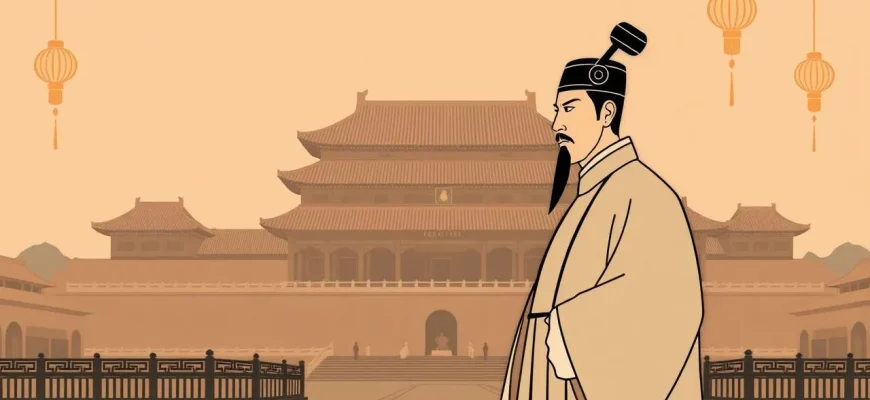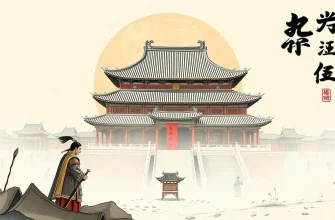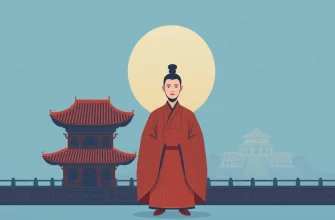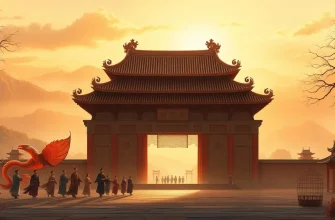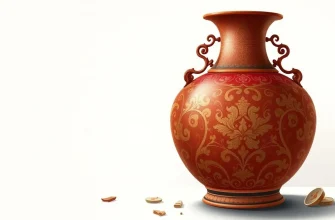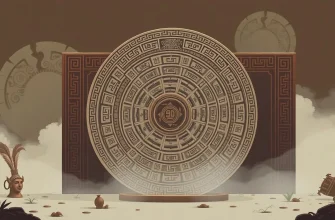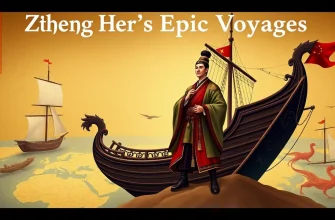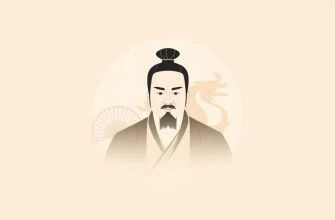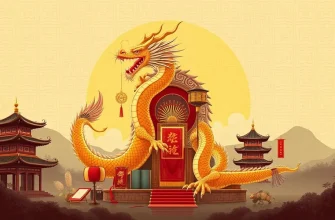Delving into the rich tapestry of Chinese history, these films offer a glimpse into the lives of emperors who shaped the Middle Kingdom. From the opulent courts to the battlefield, these movies not only entertain but also educate, providing a window into the complexities of imperial rule, court politics, and the personal lives of these historical figures. Whether you're a history buff or just love epic storytelling, this curated list of films will transport you to a time of grandeur and intrigue.

The Last Emperor (1987)
Description: This epic biographical drama chronicles the life of Puyi, the last Emperor of China, from his ascension to the throne at the age of three to his later years as a gardener in Communist China. It's a poignant exploration of the end of an era and the personal journey of a man caught between tradition and modernity.
Fact: The film was the first Western film to be shot inside the Forbidden City in Beijing. It also won nine Academy Awards, including Best Picture.
 Watch Now
Watch Now 
The Emperor's New Groove (2000)
Description: Although an animated comedy, this film humorously explores themes of power, humility, and friendship through the story of Emperor Kuzco, who is turned into a llama by his power-hungry advisor.
Fact: Originally conceived as a more serious drama, it was transformed into a comedy during development, becoming one of Disney's most beloved animated films.
 Watch Now
Watch Now 
The Emperor and the Assassin (1998)
Description: Set in the Warring States period, this film tells the story of the Qin King Ying Zheng's quest to unify China and his complex relationship with Jing Ke, the assassin sent to kill him. It's a tale of ambition, betrayal, and the cost of power.
Fact: The film was one of the most expensive Chinese films ever made at the time, with a budget of over $15 million.
 Watch Now
Watch Now 
The Banquet (2006)
Description: Inspired by Shakespeare's "Hamlet," this film is set in the Tang Dynasty, where a prince seeks to avenge his father's death by his uncle, who has taken the throne. It's a tale of revenge, love, and political intrigue.
Fact: The film was originally intended to be a direct adaptation of "Hamlet" but was adapted to fit the historical context of ancient China.
 Watch Now
Watch Now 
Curse of the Golden Flower (2006)
Description: Set during the Tang Dynasty, this visually stunning film explores the power struggles and family dynamics within the imperial palace, where the Emperor's wife plots to overthrow him. It's a story of opulence, betrayal, and the dark undercurrents of royal life.
Fact: The film features one of the largest sets ever built for a Chinese movie, with a replica of the Tang Dynasty palace.
 Watch Now
Watch Now 
The Forbidden Kingdom (2008)
Description: This modern martial arts fantasy features a young American who travels back in time to ancient China, where he must help the Monkey King and other legendary figures to restore the Jade Emperor's rule.
Fact: The film marks the first on-screen collaboration between Jackie Chan and Jet Li, two of the biggest names in martial arts cinema.
 Watch Now
Watch Now 
The Warlords (2007)
Description: While not directly about an emperor, this film set during the Taiping Rebellion shows the rise of a warlord who eventually becomes a key figure in the Qing Dynasty's struggle for survival. It's a gritty look at the power dynamics and the human cost of war.
Fact: The film was a collaboration between Hong Kong, China, and South Korea, featuring stars from all three countries.
 Watch Now
Watch Now 
The Empress Dowager (1975)
Description: This film delves into the life of Empress Dowager Cixi, who ruled China behind the scenes during the late Qing Dynasty. It's a portrayal of her cunning, ambition, and the lengths she went to maintain power.
Fact: The film was one of the first to explore the complex character of Cixi, often portrayed negatively in historical accounts.
 30 Days Free
30 Days Free 
The Emperor's Shadow (1996)
Description: This film focuses on the relationship between Emperor Qin Shi Huang and his court musician, Gao Jianli, whose music becomes a symbol of resistance against the emperor's tyranny. It's a tale of art, power, and the clash between personal freedom and imperial control.
Fact: The film was one of the first Chinese films to gain international recognition for its historical accuracy and depiction of ancient Chinese music.
 30 Days Free
30 Days Free 
The Founding of a Republic (2009)
Description: While not about an emperor, this film covers the events leading to the fall of the Qing Dynasty and the establishment of the People's Republic of China, showcasing the end of imperial rule.
Fact: The film features an ensemble cast of over 170 Chinese stars, making it one of the largest casts in Chinese cinema history.
 30 Days Free
30 Days Free 
